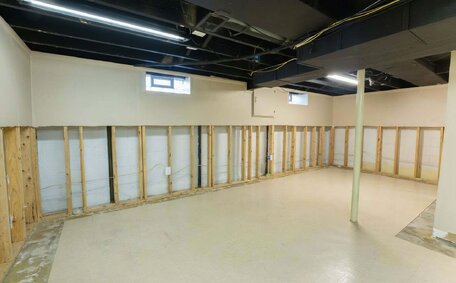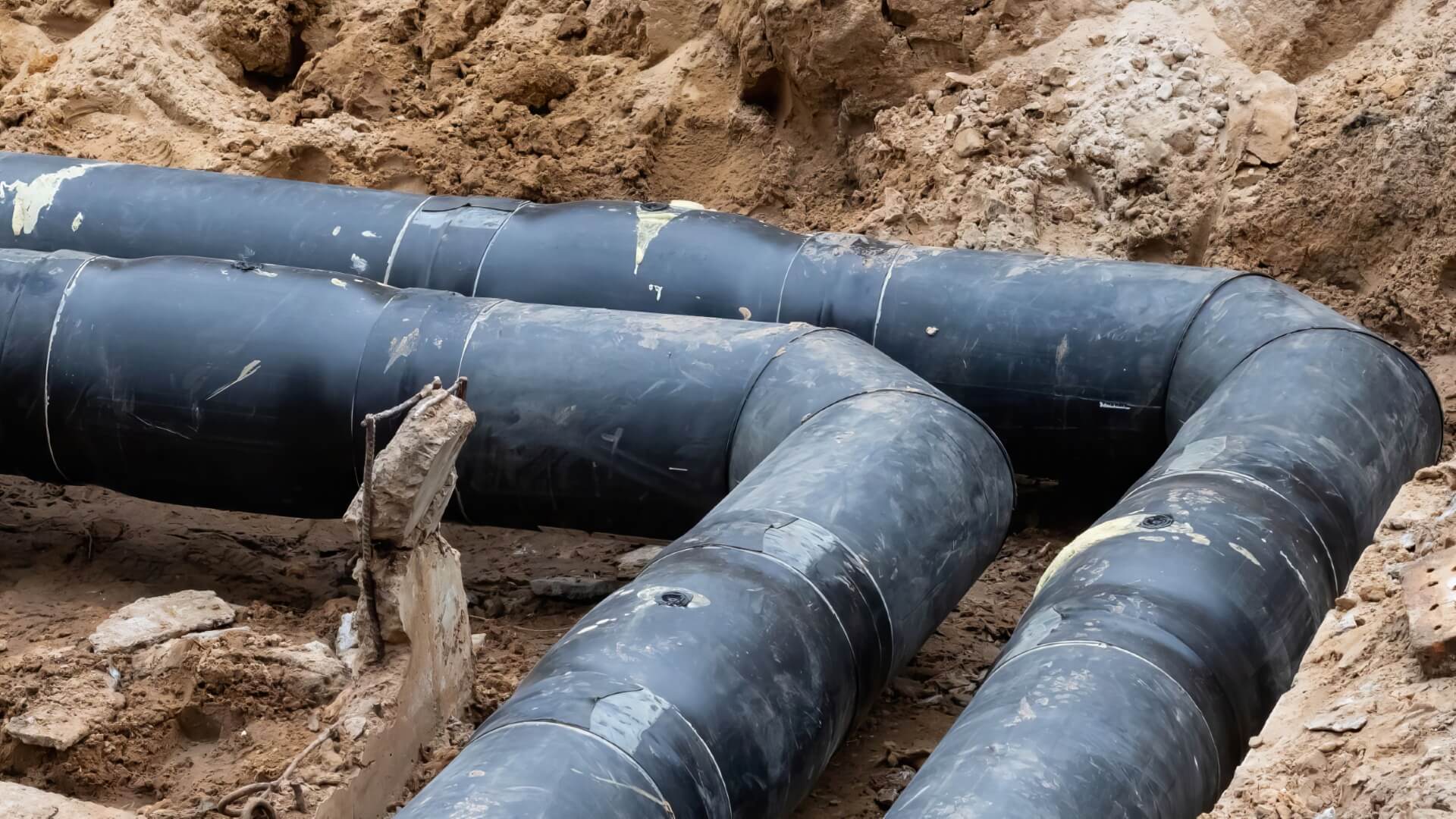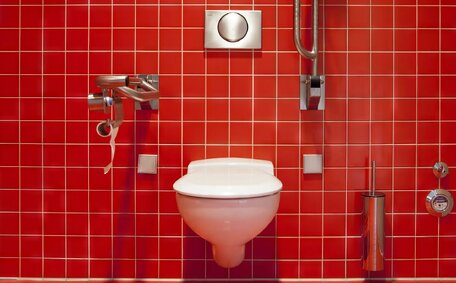Introduction: What is a blocked drain and why does it happen?
Blocked drains, often caused by accumulated debris and grease, impede water flow, which can result in sink backups, foul odours, and potential flooding.
Numerous factors contribute to blocked drains in plumbing systems. Tree roots can invade and break sewer lines from outdoors.
Food scraps and oils going down kitchen sinks can gradually coat the main drain and cause obstructions over time. Additionally, bathroom pipes can become increasingly clogged due to the accumulation of soap scum, hair, and other debris.
Without proper drainage, water begins backing up with nowhere else to go. If overlooked, a minor clog can escalate into a significant drain blockage, resulting in slowed or backed-up water. Identifying problematic signs early within your plumbing system is the best way to clear a blockage with simple tools before extensive repairs become necessary.
The early warning signs of a blocked drain you shouldn’t ignore
Several signs may indicate there’s an obstruction in your drain. If you observe the following indicators, it could be a sign blocked drain is wreaking havoc, deserving prompt attention before it escalates:
- Slow drainage - Water draining slower than usual from sinks, tubs, or toilets can signal a partial blockage.
- Gurgling noises - Loud gurgling sounds from plumbing can indicate trapped air and water attempting to pass through a narrow blockage.
- Sewage odours - A foul smell from your drains could sign a buildup of waste and gases trapped by blockages.
- Recurring clogs - Drains that get repeatedly clogged over a short time likely have a larger obstruction in the line.
- Backed up water - Noticeable pooling water in sinks, tubs, or toilets that drains slowly or not at all points to a significant clog.
Staying alert to signs of a blocked drain, such as slow draining water, can help you address plumbing problems promptly. Taking quick action also minimises cost and damage to your plumbing system and your home.
Slow Water Drainage or Complete Blockage
A sign your drain is blocked is when water is slow draining, moving unusually slowly or not at all. For example, if water spills into your shower drain and lingers longer than normal after you finish your morning rinse, it could signal a blockage.
Sluggish or halted drainage typically occurs once debris has narrowed the passages enough to significantly restrict water flow. Slow drainage may also indicate early development of pipe intrusions from tree roots.
Regardless of speed, lack of proper water movement means there is a clog preventing waste from passing through the pipes. To prevent clogs and ensure easy clearance, avoid pouring fats, oils, or non-degradable items such as wipes and cotton swabs down drains.
Gurgling sounds from pipes
When there are gurgling noises coming from your pipes, it’s concerning because this typically signals draining problems. A gurgling sound tends to occur when air and water attempt to navigate past a partial blockage.
You may notice a gurgling noise from your sink shower or when you flush your toilet, particularly after heavy usage. Loud gurgling from your sink or when you flush your toilet also indicates potential obstructions in wastewater removal.
Trapped air bubbling through water obstructed by debris or compacted waste becomes especially noticeable when flushing the toilet. As pressure builds, the air escapes through small gaps causing bubbly, almost growling sounds. identifies an undersized opening somewhere in the line.
Respond quickly to unusual gurgling noises as they clearly indicate a blockage in your drainage system. Small blockages, when ignored, can back up and escalate into more serious issues, potentially affecting your home. Have a plumber investigate your pipes before serious backups or burst lines occur.
Sewage odors around drains
Foul odours from sinks, showers, bathtubs, or toilets often suggest a blocked drain caused by wastewater buildup. Because flow is restricted, drain gases and decomposing waste materials in the main line release foul odours back into the home.
If odours seem localised around bathroom or kitchen fixtures, you’ve got a clog in an attached branch sewer drain. In some cases, more pervasive sewer gas smells throughout the house are signs your sewer drain may be backed up. It’s prudent to swiftly address issues that slow drainage when investigating the sources of unpleasant odours.
While sometimes difficult to pinpoint by scent alone, Professional plumbers can help identify blocked areas responsible for rotten stenches using drain cameras. A plumber can then focus on clearing the specific clogged areas and deodorise lines to stop embarrassing smells.
Higher water levels in fixtures
Rising toilet water level above the norm can be a red flag for a potential blockage, suggesting it may be time to call a plumber soon to examine the situation. For example, a clogged drain can present as your toilet that flushes but doesn’t empty or continues refilling, a red flag indicating no escape route for the water.
In bathroom sinks, water may pool around the drain, indicating it’s not draining properly. Or you might encounter a bath shower tub requiring bailing out post-bath time. Water that drains slowly or pools indicates an impeded flow, suggesting a partial or complete clog.
The key thing to remember is any inconsistency in drainage; it’s sign that your plumbing might need attention due to a potential blockage. Sudden changes from the norm usually mean there is a new interruption in the pipes requiring removal. Recognising early signs blocked helps provide the best opportunity to clear obstructions prior to major flooding or water damage.
Common causes of drain blockages and how to prevent them
There are several common culprits, often created by your own household habits, responsible for clogged drains:
- Accumulated debris - Over time, hair, food scraps, fats/oils, soap scum, and other debris can slowly build up on pipe walls and narrow openings.
- Tree roots - Invading roots from shrubs and trees outside can break through pipes seeking water sources underground.
- Foreign objects - Pouring wipes, cotton swabs, toys, and other items down drains leads to stuck obstructions.
- Deteriorating pipes - Cracks or holes from ageing, corrosion, freezing, shifting, etc allows debris intrusion and clogging.
Catching minor clogs from appliances like your washing machine early can save you from major blockages necessitating extensive repair later on. If you have recurring drain issues or notice severe warning signs blocked problems, don’t hesitate to call a plumber.
- Accumulated debris - Over time, hair, food scraps, fats/oils, soap scum, and other debris can slowly build up on pipe walls and narrow openings.
Buildup of hair, food, grease, and other debris
Everyday activities like showering, washing dishes, and prepping meals contribute to debris accumulation in drains. Over time, this leads to clogged pipes.
Hair is a common culprit of bathroom clogs. Strands wash down showers and sinks, catching other gunk. Kitchen drains also frequently block from fats, oils, and food scraps washing down sinks.
Opting to use drain guards or screens can clear drain openings by catching hair and food bits before they enter pipes. Also, limit oil and grease pouring. Any that does go down drains should be chased with hot water to dissolve buildup.
Further, trash items like cotton swabs, dental floss, paper towels, and hygiene products can snag in pipes when flushed. Always dispose in bins instead of sending them down drain.
With vigilant debris catching and waste awareness, you can curb pipe obstructions. But even watching drains closely may not prevent every clog. Using a preventative drain cleaner every 3-6 months helps break up accumulation from hair, grease, and grime to keep flows free.
Invasion of tree roots
Tree roots pose a sneaky threat to pipes, especially in older plumbing systems. As roots spread underground seeking water sources, they can invade pipe joints and cracks.
Once there, roots expand and may cause a blockage, trapping moisture from drainage flows in your water pipe. They gradually intrude further down the lines, breaking pipe interiors and blocking water passageways completely.
You may not realise root invasion until you face a blocked sewer occurrence. Installing pipe shields, filters, or foam barriers around exterior plumbing can block root access. Trees around your property might need trimming to prevent root intrusions into your pipes.
Without proper care, you could face recurring issues, as with any neglected maintenance.
Periodic inspections with drain cameras for in-pipe root infestations are recommended. With early detection, you can find and remove roots with minimal pipe damage. But left unaddressed, invasive roots can cause complete clogged drains and pipe fractures necessitating replacement as soon as possible.
Pipe damage or misalignment
Pipe damage or improper alignment during installation can also cause major blockages. Cracks, holes, joint misfits, sagging, freezing shifts, and corrosion open up gaps that catch passing debris.
A problem can arise from pipe structural issues, which may include persistent clogs that quickly reoccur after cleaning, localised sewage odours, and visible water leaks. If you suspect pipe damage, watch out for signs that necessitate calling a plumber to thoroughly inspect lines with a sewer camera.
Fixing pipe integrity early is crucial to avoiding total line failure or blockages. Annual drain inspections can also catch and monitor defects before they obstruct drainage flows.
Professionals recommend trenching and replacing damaged sections or realigning joints to effectively repair drain issues. For aged plumbing, sometimes a full drain can replacement may be necessary.
Tips to keep your drains flowing smoothly
Preventing drain clogs in the first place is easier and less costly than clearing blockages after they occur. Here are some tips to maintain free-flowing drains:
- Install drain catchers to protect and maintain your drain your and prevent hair and debris from entering pipes.
- Turn off water and avoid pouring oil and grease down kitchen sinks. Run hot water while washing greasy dishes to help dissolve fats.
- Flush only human waste and toilet paper down toilets to avoid clogs.
- Use a wire snake monthly to clear out your fixtures of accumulated hair and soap scum.
- Pour 12 cup baking soda and vinegar down drains monthly to break up grease and keep water flowing freely.
- Have a professional hydrojetting service clear all pipes every year to wash out debris.
- Inspect plumbing at least yearly for leaks, cracks or root intrusions. Repair issues early before they worsen and cause clogs.
Despite regular maintenance, drains can sometimes become clogged. Should you notice any unmistakable water gurgling sounds, contact a plumber immediately. Should you hear gurgling in your drains, small issues left unaddressed can quickly escalate into major blockages and burst pipes, creating a need for an emergency plumber.
When to call a professional plumber
It’s necessary to call a plumber when persistent blockages defy conventional at-home remedies. Persistent warning signs such as slow drainage, gurgling noises, sewage smells, or rising water levels indicate you’ve got problem with obstructions likely necessitating hands-on mechanical clearing.
Get in touch with St Peters Plumbing, your local plumber specialists, who have served the St Peters area of Sydney for more than a decade. Customers are very happy that the work was completed with such skill and service provided by our team, having over 10 years of experience in resolving all kinds of drain obstructions. They offer a competitive call out fee which pleases customers, with the assurance of no hidden charges.
If you suspect your drain blocked situation stems from pipe damage or tree roots, get touch with St Peters Plumbing who have cutting-edge sewer cameras to fully inspect lines and identify issues. Based on their findings, they’ll recommend exactly what need in terms of repair or replacement services to prevent future clogs.
For prompt assistance from trusted professionals 7 days a week, contact St Peters Plumbing at 1300 349 338 or jobs@stpetersplumbingservices.com.au.
We are local blocked drain experts you can trust
At St Peters Plumbing, the team specialises in clearing blocked drains for homes and businesses in the St Peters area of Sydney. With over 10 years of experience, like the time i called for assistance, our team of licenced technicians have seen it all when it comes to drain obstructions.
We utilise state-of-the-art drain cleaning equipment to clear even the toughest blockages, similar to the time I called upon their expertise when faced with a stubborn clog. Our hydrojetting service was very successful in blasting away years of built-up grease, soap residue, and other debris. We also use advanced sewer cameras to fully inspect drain lines and identify underlying issues fuelling recurrent clogs.
Beyond drain clearing, we handle all facets of plumbing maintenance and repair for both residential and commercial customers. From leaky faucets to pipe relining to hot water heater installation — there’s no job too big or small for our capable team.
That’s why we offer 24/7 assistance. We ensure prompt efficient help, with knowledgeable staff that make assistance trouble-free.
Simply call 1300 349 338 or email jobs@stpetersplumbingservices.com.au. We believe plumbing issues should never become plumbing emergencies.
Don’t wait with a blocked drain in St Peters. Trust our decade of local expertise to deal with a blocked drain in your property efficiently and professionally.






